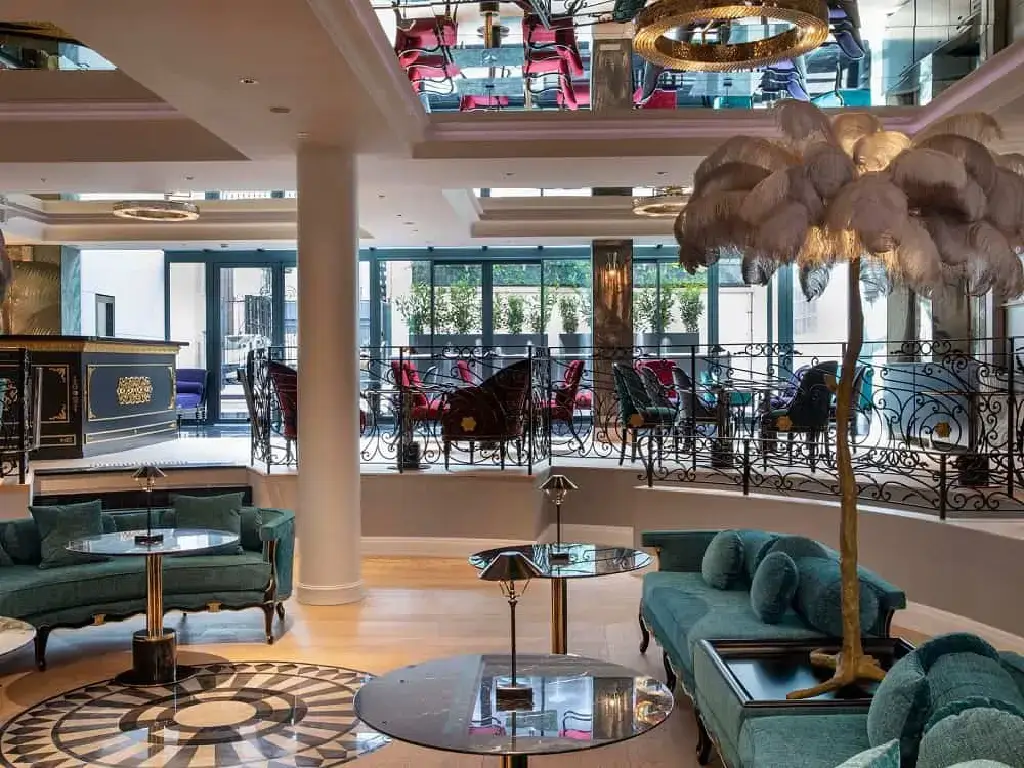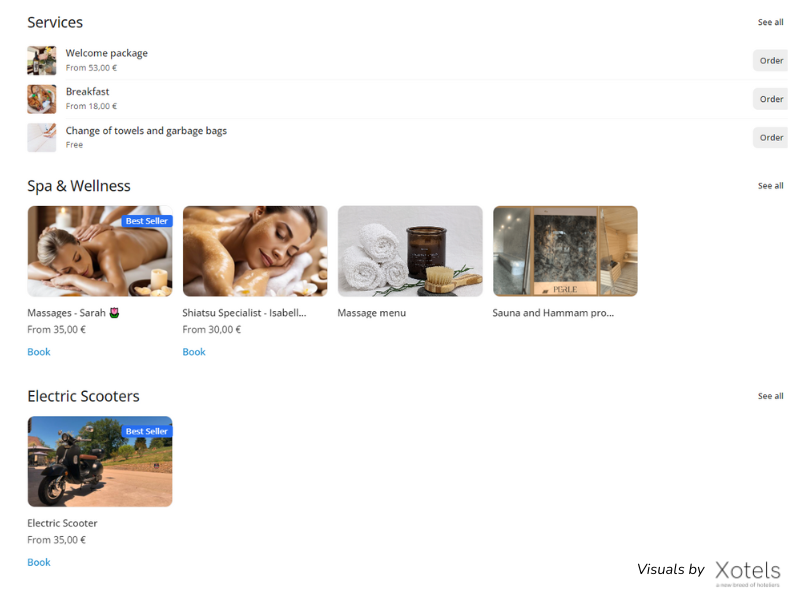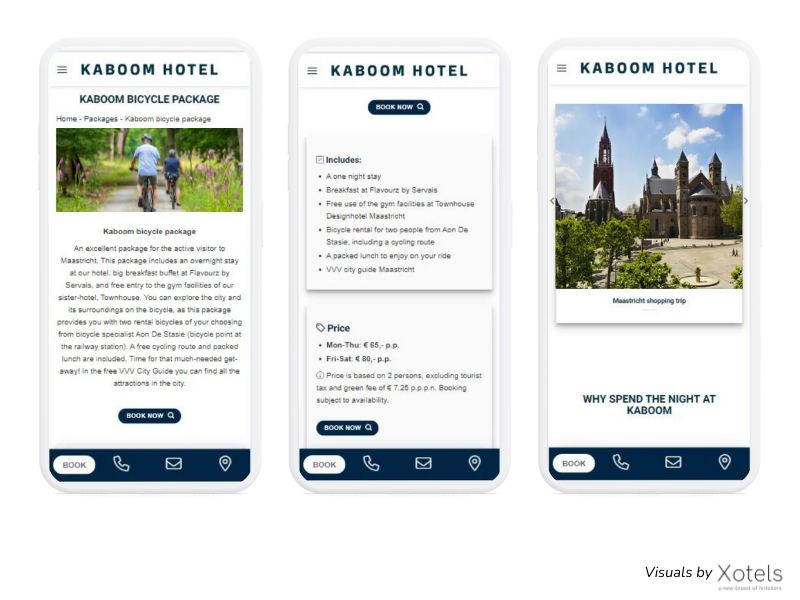
Alright then, let’s cut to the chase. You’ve got a hotel, right? And you’re probably wondering how to get it full with happily paying guests. Well, buckle up, because I’m about to spill the beans on how to squeeze every last penny out of your hotel venture.
Forget those boring textbooks and those stuffy advisors. We’re going to get down and dirty with the real-world strategies that we have actually seen working as a revenue management consulting company. We’re talking about the kind of moves that’ll have your competitors scratching their heads and your accountant doing a happy dance.
So, grab a cup of coffee, get comfortable, and let’s dive into the nitty-gritty of how to make your hotel a money-making machine. Trust me, this is going to be fun…
To boost your hotel’s profits I will walk you through proven strategies and practical tips, covering the following areas:
- Yield Management: Your Secret Weapon for Maximum Profit
- Upselling & Cross-Selling: The Art of Turning Guests into Big Spenders
- Loyalty Programs: Turning Guests into Raving Fans (And Repeat Customers)
- Online Reputation Management: Why Reviews Matter More Than You Think
- Beyond the Room: Ancillary Revenue Streams
- Cost Control & Efficiency: Boosting Your Bottom Line
- Marketing that Works: Reaching Your Target Audience
Yield Management: Your Secret Weapon for Maximum Profit
Let’s talk about yield management. As someone who spent his fair share of time in the trenches of revenue management, I can tell you it isn’t just some fancy industry jargon; it’s a game-changer, a revenue booster, your ticket to serious profit. It’s about understanding that a hotel room isn’t a static product with a fixed price tag. It’s a dynamic asset that can—and should—fluctuate in price based on a whole slew of factors.
What is Yield Management, Really?
In a nutshell, yield management means adjusting your room rates in real-time based on demand, seasonality, events, and even the day of the week. It’s about selling the right room to the right guest at the right time for the right price. Sounds simple, right? Well, it can get quite complex, but the payoff is immense.
Think Like an Airline
Ever noticed how airline ticket prices change constantly? That’s yield management in action. They know that a seat on a plane has no value once the plane takes off, so they use sophisticated algorithms to fill every seat at the highest possible price. You can apply the same principle to your hotel rooms.
Practical Tips for Yield Management
- Know Your Demand: Keep a close eye on your booking patterns. When are your peak seasons? What events drive demand in your area? Use this data to forecast demand and adjust your prices accordingly.
- Segment Your Market: Not all guests are created equal. Some are price-sensitive leisure travelers, while others are business travelers with deeper pockets. Segment your market and tailor your pricing to each segment.
- Use Dynamic Pricing: Don’t be afraid to change your prices frequently. A dynamic pricing strategy allows you to react to market fluctuations in real-time, ensuring you’re always maximizing revenue.
- Offer Packages and Deals: Bundle rooms with other services, like breakfast, spa treatments, or local activities. This can entice guests to book at a higher rate while also increasing your overall revenue.
- Don’t Forget About Upselling: Train your staff to upsell guests to higher room categories or add-on services. A little bit of extra effort can go a long way in boosting your bottom line.
The Power of Experts
Yield management can be complex, but you don’t have to go at it alone. Consider hiring a revenue management consultant instead. These experts have the knowledge and tools to analyze your data, optimize your pricing, and maximize your revenue. Think of them as your secret weapon in the battle for profitability.
Real-World Example
A hotel in a popular tourist destination noticed that their occupancy dropped significantly during the shoulder season. They implemented a yield management strategy, offering discounted rates and packages to attract more guests. They also partnered with local businesses to offer special deals and promotions. As a result, their occupancy increased by 20% during the shoulder season, and their overall revenue grew by 15%.
Remember, yield management isn’t just about charging more; it’s about charging the right price at the right time. By mastering this art, you can unlock a whole new level of profitability for your hotel.
2. Upselling and Cross-Selling: The Art of Turning Guests into Big Spenders

Alright, let’s talk about the real money-makers in the hotel game – upselling and cross-selling. These are the techniques that can significantly boost your hotel’s revenue without a ton of extra effort. It’s all about enticing your guests to spend a little (or a lot) more during their stay and, trust me, it’s easier than you think.
Upselling: Elevate Their Experience, Elevate Your Revenue
Upselling is simply the art of persuading guests to upgrade their initial purchase. Think of it like offering a first-class upgrade on an airline. In the hotel world, this could mean upgrading them from a standard room to a suite, a room with a better view, or one with additional amenities like a jacuzzi or balcony.
The key here is to present the upgrade as an irresistible opportunity to enhance their experience. Highlight the additional benefits and value they’ll get from the upgrade. For example, instead of saying, “Would you like to upgrade to a suite for an extra $100 per night?” try, “For just $100 more per night, you can enjoy a spacious suite with stunning ocean views, a separate living area, and a complimentary bottle of champagne upon arrival.”
See the difference?
Cross-Selling: The More, the Merrier
Cross-selling is about offering additional products or services that complement their initial purchase. It’s like the waiter suggesting a delicious appetizer to go with your main course. In a hotel, this could mean offering breakfast packages, spa treatments, tickets to local attractions, or even a romantic dinner for two.
The secret to successful cross-selling is to make it relevant and enticing. If a guest is booking a room for a romantic getaway, suggest a couples’ massage package. If they’re traveling with kids, offer a family-friendly activity bundle. The more tailored your offers are, the more likely guests are to bite.
Practical Tips and Examples to Boost Your Bottom Line
- Train Your Staff: Your front desk staff and concierge are your frontline salespeople. Train them to identify upselling and cross-selling opportunities and present them in a natural, non-pushy way.
- Create Irresistible Packages: Bundle your rooms with other services or amenities to create attractive packages. For example, offer a “Romantic Escape” package that includes a room upgrade, champagne, and a couples’ massage.
- Offer Incentives: Sometimes, a little incentive can go a long way. Offer a discount on a spa treatment when guests book a room upgrade, or throw in a free breakfast for guests who book a certain number of nights.
- Use Visuals: A picture is worth a thousand words. Use high-quality photos and videos to showcase your upgraded rooms, spa treatments, and other amenities.
- Personalize Your Offers: Use the information you have about your guests to tailor your offers. If a guest has booked a room for a business trip, offer them a discounted rate on airport transfers or late check-out
- Time It Right: Don’t bombard guests with offers as soon as they check-in. Wait until they’ve had a chance to settle in and then present them with relevant upselling and cross-selling opportunities.
- Track Your Results: Monitor your upselling and cross-selling efforts to see what’s working and what’s not. Use this information to refine your strategies and improve your results.
- By mastering the art of upselling and cross-selling: you can significantly increase your hotel’s revenue and provide your guests with an even more memorable and enjoyable stay. It’s a win-win situation for everyone involved!
Remember: The key to success is to be genuine, helpful, and always focus on enhancing the guest experience. When you do that, the extra revenue will naturally follow.
3. Loyalty Programs: Turning Guests into Raving Fans (And Repeat Customers)

Let’s talk about building a loyal following for your hotel, a tribe that not only keeps coming back but also sings your praises to everyone they know. The secret sauce? Loyalty programs.
Loyalty programs are more than just rewards; they’re a way to build a relationship with your guests. It’s about making them feel valued, appreciated, and like they’re part of something special. And guess what? Loyal customers spend more, book direct, and become your biggest advocates.
Why Loyalty Programs Work Like Magic
Think of it like this: you’re rewarding guests for their trust and continued support. The more they stay with you, the more perks they unlock. It’s a win-win!
Here are some tangible benefits:
- Increased Bookings: Loyal guests are more likely to choose your hotel over competitors, leading to higher occupancy rates.
- Higher Spending: Members tend to spend more during their stays, splurging on room upgrades, dining, and other services.
- Direct Bookings: Loyalty programs encourage guests to book directly with you, saving you those hefty commissions paid to OTAs.
- Valuable Data: You gain valuable insights into your guests’ preferences, allowing you to tailor your services and marketing efforts.
- Positive Word-of-Mouth: Happy, loyal guests become your most effective brand ambassadors, spreading the word about your hotel.
Crafting a Loyalty Program That Wows
There’s no one-size-fits-all approach here. You need to create a program that resonates with your target audience. But here are some ideas to get you started:
- Points-Based System: Guests earn points for every stay, which they can redeem for discounts, free nights, or other rewards.
- Tiered Rewards: Offer different levels of membership with increasing benefits. This creates a sense of aspiration and motivates guests to climb the ladder.
- Exclusive Perks: Surprise and delight your members with unique experiences like early check-in, late check-out, complimentary upgrades, or even personalized welcome gifts.
- Partner Benefits: Extend your reach by partnering with other businesses to offer discounts or exclusive access to attractions, restaurants, or local shops.
- Gamification: Make it fun! Add challenges, quizzes, or scavenger hunts to your loyalty program to keep guests engaged and leave them wanting to come back for more.
Pro Tip: Make it Easy and Accessible
A loyalty program is only effective if it’s easy for guests to join and use. Streamline the enrollment process, make it simple to track points, and ensure rewards are easy to redeem. And remember, the key is to create a program that makes your guests feel like VIPs. Show them you appreciate their business, and they’ll reward you with their loyalty – and their wallets!
Bonus Tip: Don’t forget to promote your loyalty program on your website, social media, and in your hotel’s marketing materials. The more people know about it, the more likely they are to join and become loyal customers.
4. Online Reputation Management

Now, let’s talk about something crucial for your hotel’s success: online reputation management. In today’s digital age, reviews are the lifeblood of your business. Think of them as your hotel’s report card, visible to the entire world. A string of positive reviews can make your hotel the hottest ticket in town, while negative ones can scare potential guests away faster than a fire alarm.
Why Reviews Matter More Than You Think
Here’s the deal: most travelers won’t even consider a hotel without checking its online reviews first. They trust the opinions of fellow guests more than any fancy marketing campaign you can create. A single bad review can cost you hundreds, even thousands of dollars in lost bookings.
But it’s not just about avoiding negative reviews. A stellar online reputation can significantly boost your hotel’s profitability. Positive reviews act as free advertising, attracting more guests and allowing you to charge premium rates. It’s like having a 24/7 marketing team working for you, and the best part? It’s absolutely free!
Taking Control of Your Online Reputation
Now, let’s get practical. How do you manage your online reputation effectively? Here are some tips:
- Monitor Reviews Regularly: Set up alerts for your hotel’s name on popular review sites like TripAdvisor, Google, and Yelp. Respond to both positive and negative reviews promptly and professionally.
- Respond to Negative Reviews with Grace: Don’t get defensive or dismissive. Apologize for any negative experiences and offer solutions. Remember, how you handle criticism can leave a lasting impression on potential guests.
- Encourage Positive Reviews: Make it easy for guests to leave feedback by providing links to review sites on your website and in follow-up emails. Consider offering incentives like a small discount on their next stay for leaving a review.
- Engage on Social Media: Respond to comments and messages promptly. Share positive guest experiences and user-generated content. This shows potential guests that you care about their feedback and are committed to providing excellent service.
- Go Above and Beyond: Surprise and delight your guests with unexpected perks or personalized touches. This can lead to glowing reviews that will attract even more guests to your hotel.
Real-World Examples
Let’s look at some real-life examples of how hotels have successfully managed their online reputation:
- A boutique hotel in Paris received a negative review from a guest who complained about the noise level in their room. Instead of ignoring the review or getting defensive, the hotel manager responded with a sincere apology and offered the guest a complimentary upgrade to a quieter room on their next visit. This not only appeased the disgruntled guest but also left a positive impression on other potential guests who read the exchange, showcasing the hotel’s commitment to guest satisfaction.
- Another example is a resort in Bali that actively encourages guests to share their experiences on social media by creating a branded hashtag and featuring user-generated content on their own channels. This not only provides them with a steady stream of authentic marketing material but also fosters a sense of community among their guests.
The Bottom Line
Online reputation management is not just a buzzword; nor is it a one-time task, but it’s a crucial aspect of running a successful hotel. It’s an ongoing process that requires constant attention and effort. But trust me, the rewards are well worth it. A positive online reputation can be a powerful driver of profitability for your hotel. So, make it a priority and watch your bookings soar!
5. Beyond the Room: Ancillary Revenue Stream
Last but not least, let’s dive into a side of hotel revenue that often gets overlooked but can be a serious game-changer for your bottom line: ancillary revenue streams. Now, I’m not talking about nickel-and-diming your guests – it’s about adding value and giving them reasons to spend more while enjoying your hospitality.
Food and Beverage: More Than Just a Meal
Think of your hotel’s F&B options as more than just sustenance for guests. They’re opportunities to create memorable experiences. A trendy bar with signature cocktails, a cozy cafe with artisanal coffee, or a themed restaurant with local cuisine can all attract both guests and locals, boosting revenue.
- Tip: Consider partnering with local breweries or wineries for exclusive tasting events. This adds a unique touch to your offerings.
Spa and Wellness: Relaxation Meets Revenue
A spa isn’t just a luxury – it’s a sought-after amenity that can bring in serious cash. Offer a range of treatments, from massages and facials to fitness classes and wellness programs. Get creative with packages that combine spa treatments with other hotel services.
- Tip: Partner with local wellness experts or yoga instructors to offer exclusive workshops or retreats.
Conference and Event Hosting: A Profitable Space
If you have the space, why not make it work for you? Conference rooms, ballrooms, and outdoor areas can be rented out for weddings, corporate events, and social gatherings. This can be a substantial revenue stream, especially during off-peak seasons.
- Tip: Offer catering and A/V services to make it a one-stop shop for event planners.
Partnerships with Local Businesses: Win-Win Collaborations
Your hotel doesn’t exist in a vacuum. Connect with local businesses to create mutually beneficial partnerships. Offer discounts at nearby restaurants or attractions to your guests, and in turn, they can recommend your hotel to their customers.
- Tip: Get creative with package deals that combine a stay at your hotel with experiences like wine tours, cooking classes, or outdoor adventures.

Example of Kaboom Hotel Maastricht partnering with a local bicycle rental provider.
Don’t be afraid to think outside the box. Here are a few more ideas to spark your imagination:
- Retail: Sell locally made crafts or souvenirs in your lobby.
- Activities: Offer bike rentals, guided hikes, or other experiences.
- Transportation: Arrange airport transfers or shuttle services to local attractions.
Remember, the goal is to enhance your guests’ experience while generating additional income. By offering diverse and enticing ancillary revenue streams, you’ll not only boost your hotel’s profitability but also leave a lasting impression on your guests.
Let me know if you’d like to explore any of these ideas in more detail. We can brainstorm together and tailor them to fit your specific hotel and target audience.
6. Cost Control and Efficiency: Boosting Your Bottom Line
Alright, let’s get down to brass tacks and talk about squeezing every penny of profit out of your hotel. This is where the rubber meets the road, where your savvy business decisions can make or break your bottom line. I’m talking about cost control and efficiency, and trust me, this isn’t as boring as it sounds.
First things first: identify your biggest expenses. Is it labor costs? Utilities? Marketing? Once you know where your money’s going, you can start trimming the fat.
Labor costs are often the biggest expense for hotels, so let’s tackle those first. Now, I’m not saying you should start slashing salaries or cutting hours (though if you’re overstaffed, that’s something to consider). Instead, think about how you can optimize your staff. Do you really need someone at the front desk 24/7? Could you use a chatbot for simple inquiries? Could you automate some tasks like check-ins and check-outs?
Speaking of automation, technology is your friend here. There are so many tools available now that can help you streamline operations, from property management systems to revenue management software. If you’re not already using these, you’re leaving money on the table.
AI is another game-changer in the hotel industry. You can use AI for everything from chatbots to personalized recommendations for guests. Not only can this improve the guest experience, but it can also save you money by automating tasks and reducing the need for human staff.
Now, let’s talk about utilities. This is another area where you can save big. Are you using energy-efficient appliances? Do you have a smart thermostat that adjusts the temperature based on occupancy? Are you using low-flow toilets and showerheads? These may seem like small things, but they can add up to significant savings over time.
Don’t forget about marketing. This is an essential part of running a hotel, but it doesn’t have to break the bank. Social media is a powerful (and free) tool for reaching potential guests. You can also partner with local businesses to offer packages and cross-promote.
Finally, always be on the lookout for ways to improve efficiency. This could mean anything from streamlining your booking process to improving your housekeeping procedures. A little bit of effort here can go a long way in boosting your bottom line.
Optimizing Your Workforce
Your staff is the heart and soul of your hotel. Keep them happy and motivated, and they’ll provide the kind of exceptional service that keeps guests coming back for more.
- Cross-Training: Encourage your staff to learn multiple roles. This not only makes your operation more efficient but also gives employees a sense of growth and development.
- Technology: Equip your staff with the tools they need to do their jobs efficiently. This could be anything from a modern property management system to mobile devices for housekeeping.
- Empowerment: Give your staff the authority to resolve guest issues on the spot. This not only improves the guest experience but also shows your staff that you trust their judgment.
Remember, cost control and efficiency aren’t just about cutting corners. It’s about being smart with your resources and investing in the right tools and technologies. By doing so, you can not only save money but also improve the guest experience and ultimately, make more money with your hotel.
7. Marketing that Works

Alright, let’s get down to brass tacks and talk about how to get those heads in beds and butts in seats at your restaurant. We’re diving into the world of marketing and distribution, but don’t worry, I’ll keep it snappy and jargon-free.
Reaching Your Target Audience
First things first, who are you trying to attract? Families, business travelers, or maybe the adventurous backpacker crowd? Knowing your target audience is like having a compass in the marketing wilderness. It helps you tailor your message and choose the right channels to reach them.
Old-School Charm, New-School Tech
Now, let’s talk about the tools at your disposal. You’ve got your classic marketing channels like:
- Websites and Social Media: Your hotel’s website is your digital storefront, so make it shine with stunning photos, enticing descriptions, and easy booking. Social media platforms are your virtual megaphone, use them to showcase your hotel’s personality and connect with potential guests.
- Email Marketing: Don’t underestimate the power of a well-crafted email. Build a mailing list and send out newsletters with special offers, upcoming events, or even just a friendly “hello”. It’s a great way to stay top-of-mind with past guests and entice them to return.
- Partnerships and Collaborations: Team up with local businesses, tour operators, or even influencers to expand your reach. A little cross-promotion can go a long way.
But hey, this is the 21st century, so let’s sprinkle in some tech magic:
- AI-Powered Chatbots: These little digital helpers can handle guest inquiries 24/7, freeing up your staff to focus on other tasks. Plus, they can provide personalized recommendations and even upsell services.
- Data Analytics: Track website traffic, social media engagement, and booking patterns to understand what’s working and what’s not. Use this data to refine your marketing strategies and make data-driven decisions.
Distribution: Getting Your Rooms Seen
Now that you’ve got your marketing message dialled in, it’s time to get your rooms in front of potential guests.
- Online Travel Agencies (OTAs): Love ’em or hate ’em, OTAs like Booking.com and Expedia are major players in the distribution game. They can help you reach a wider audience, but be mindful of the commissions they charge.
- Direct Bookings: Encourage guests to book directly through your website by offering special perks like free breakfast or late checkout. This not only saves you money on commissions but also gives you more control over the guest experience.
- Fight Brand Hijacking: OTAs tend to advertise in Search Engines on your hotel name. Engage them to discontinue your practice. At the same time, you should be bidding on your own hotel name to capture branded searches for your business. I would recommend to ensure you are always on top!
- Metasearch Engines: These platforms, like Google Hotel Ads or Trivago, aggregate hotel listings from various sources. Consider advertising your rooms on these engines to increase visibility.
So there you have it, a whirlwind tour of marketing and distribution strategies for your hotel. Remember, it’s all about connecting with your target audience, using the right tools (both old-school and new-school), and optimizing your workforce to create a seamless guest experience. With a little creativity and a lot of hustle, you’ll be well on your way to maximizing your hotel’s gross operating profit.
Wrapping it up: Your Roadmap for a Money-Making Machine
So there you have it, your roadmap to turning your hotel into a money-making machine, maximizing both your hotel’s revenue and profit potential. We’ve covered a lot of ground, from yield management and upselling to loyalty programs and cost control. It may seem like a lot to take in, but like I always preach at my revenue management consulting company, it’s not about implementing everything at once. Start small, experiment, and find what works best for your hotel. The key is to be proactive, stay ahead of the curve, and never stop learning. Remember, your guests aren’t just looking for a place to sleep; they’re looking for an authentic experience. So go out there, give them an unforgettable one, and watch your profits soar!
Cheers,
Patrick Landman
PS Need help with turning your hotel into a revenue-making machine? With our revenue management consulting or by managing your hotel’s operation with our hotel consulting services, we turn your hotel into a market leader.





